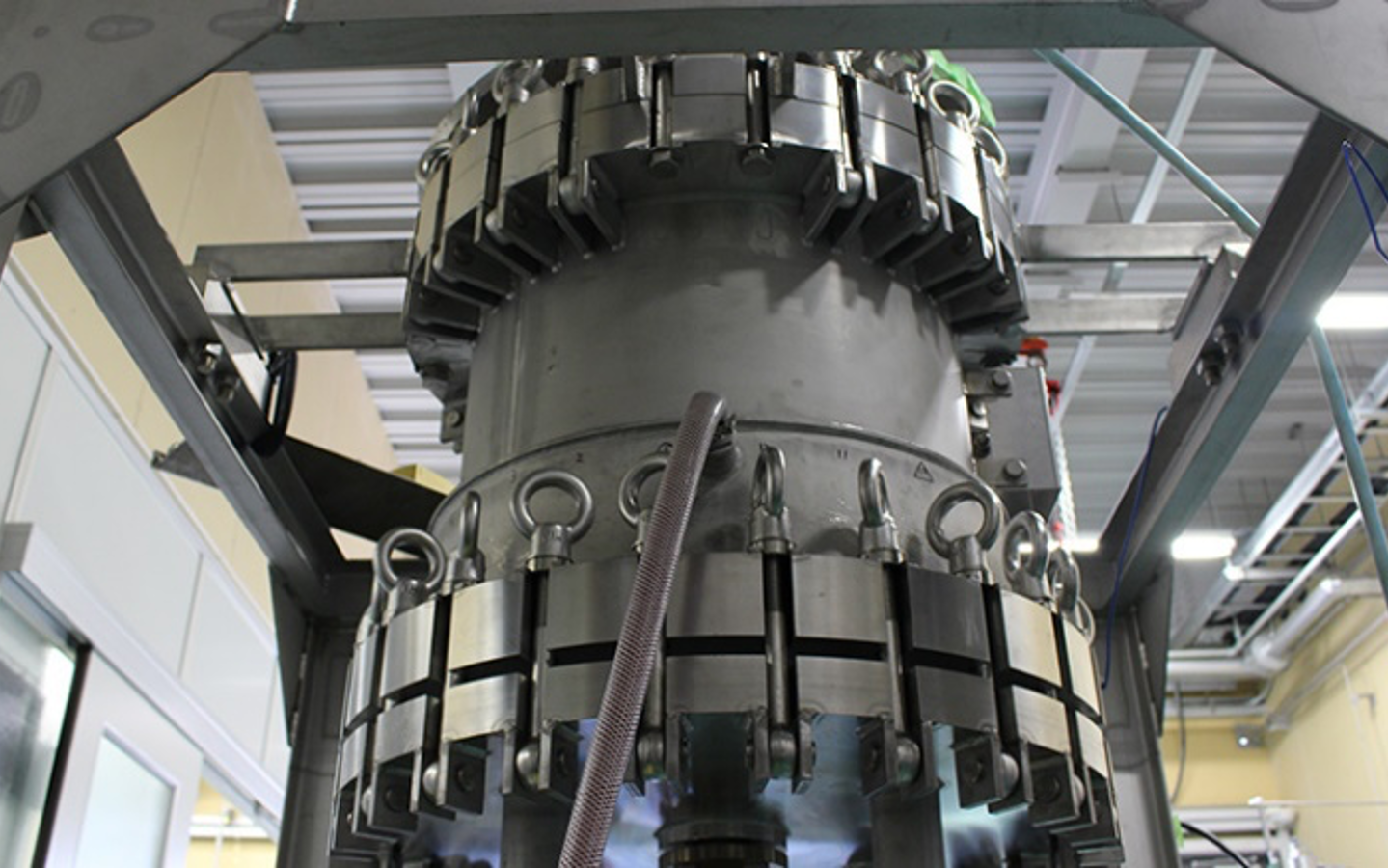Sparking innovation in the manufacturing of next generation medicines
PeptiDream, PeptiStar - Specialty Peptide Drug Development Project

-
Industry:Pharmaceuticals
-
Processes:Organic synthesis

Background
Providing state-of-the-art drugs
at affordable prices
In contrast to known peptide drugs, specialty peptide drugs are attracting attention as a new group of drugs that combines the benefits of antibody drugs and small molecule drugs. PeptiDream uses the world’s most cutting-edge technology in its research and development and has sought to produce these drugs with high purity and low cost.
It has been known in the industry that microwave synthesis can be used to produce high-purity specialty peptides at a low cost. However, scaling up the reactor was difficult.
The significance of using microwaves
Developing laboratory scale technology
into mass production technology
In the beginning, PeptiDream approached manufacturers of laboratory scale peptide synthesis equipment for scale-up but were told that it would be difficult. This led to a joint development program with MWCC, which has experience with commercial scale microwave reactors.
A reactor concept was immediately drawn up and a prototype was developed and manufactured. Until recently, microwave reactors used throughout the world were all glass vessels, which limited its potential to scale. Our reactors are made of metal and microwave synthesis reactions can be carried out inside, which makes it easy to scale and increases its versatility. As a result, we succeeded in scale-up
Development story
Developing the world’s largest
solid-phase peptide synthesis system
Research and development into an optimum microwave reaction system for specialty peptide synthesis in our laboratory led to the development of a prototype in 2017.
After over a year in development, we successfully developed a 1L-sized metal solid-phase synthesis device. The device was validated through use by PeptiDream.
This resulted in data which demonstrated that the anticipated reaction time could be significantly reduced and the amount of amino acids input as raw materials curtailed.
In light of such satisfactory results, PeptiStar, which is responsible for the production of peptide APIs, asked us to design and manufacture different sized reactors for full-scale mass production. Among this array, we successfully developed a 30L size device, the largest of the group.
This equipment would become widely known in the industry as the world’s largest solid-phase peptide synthesis system.

Social Impact
Saving lives with high-quality, low-cost manufacturing technology
The results of this project have paved the way for the mass production of high-quality specialty peptide drugs. Peptide drugs that have long been excluded from clinical trials due to the high cost of research and mass production will now hopefully see the light of day. Moreover, mass production will mean high-quality peptide drugs become affordable to all, thereby saving lives.
Currently, we are applying this microwave technology to the practical application of nucleic acid drug production, which is also a middle molecule drug. We have invited Professor Satoshi Obika of Osaka University, known for his pioneering nucleic acid medicine research, to be a technical advisor to further accelerate innovation in the development and manufacturing process of drug discovery.

https://peptistar.com/technology/microwave/